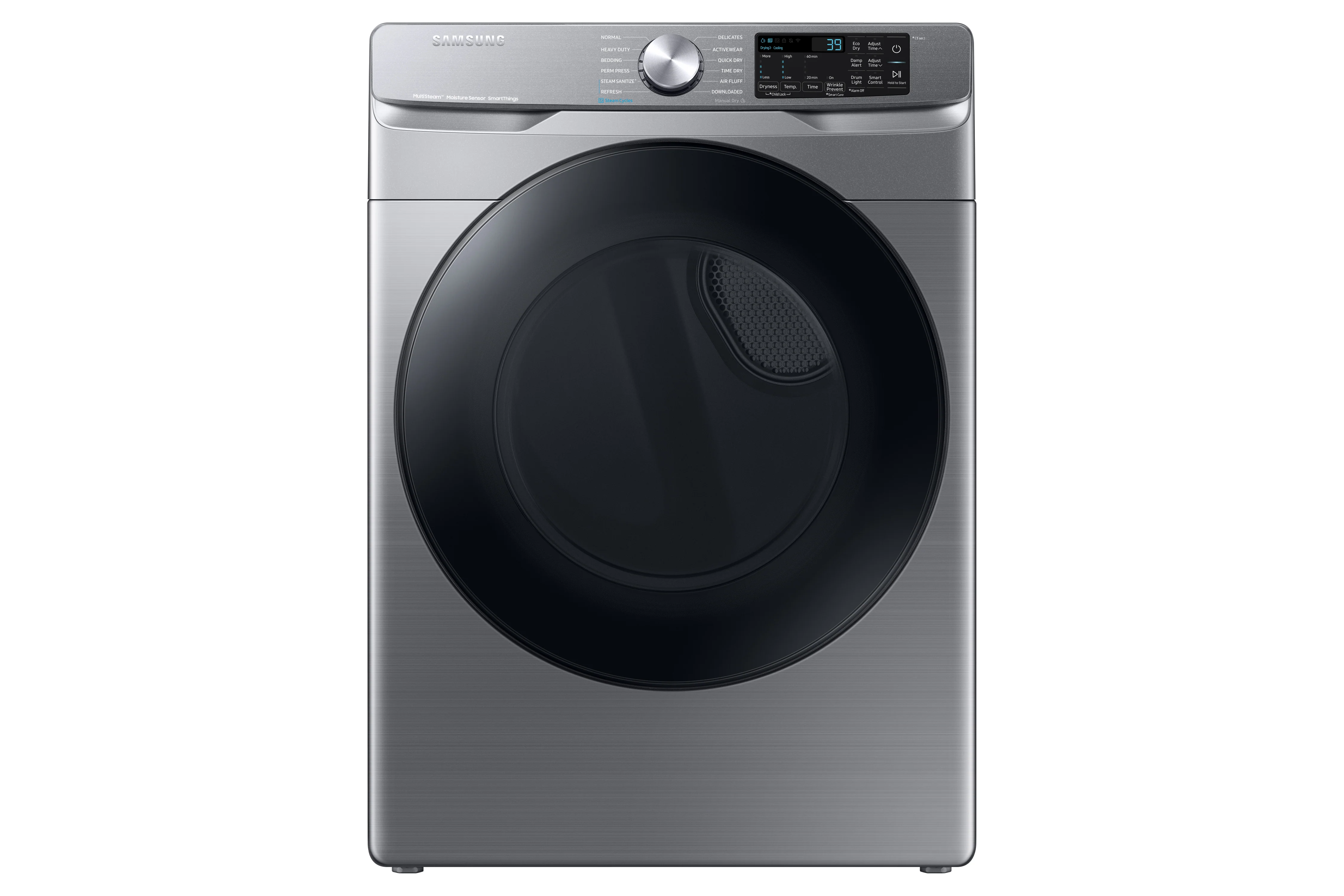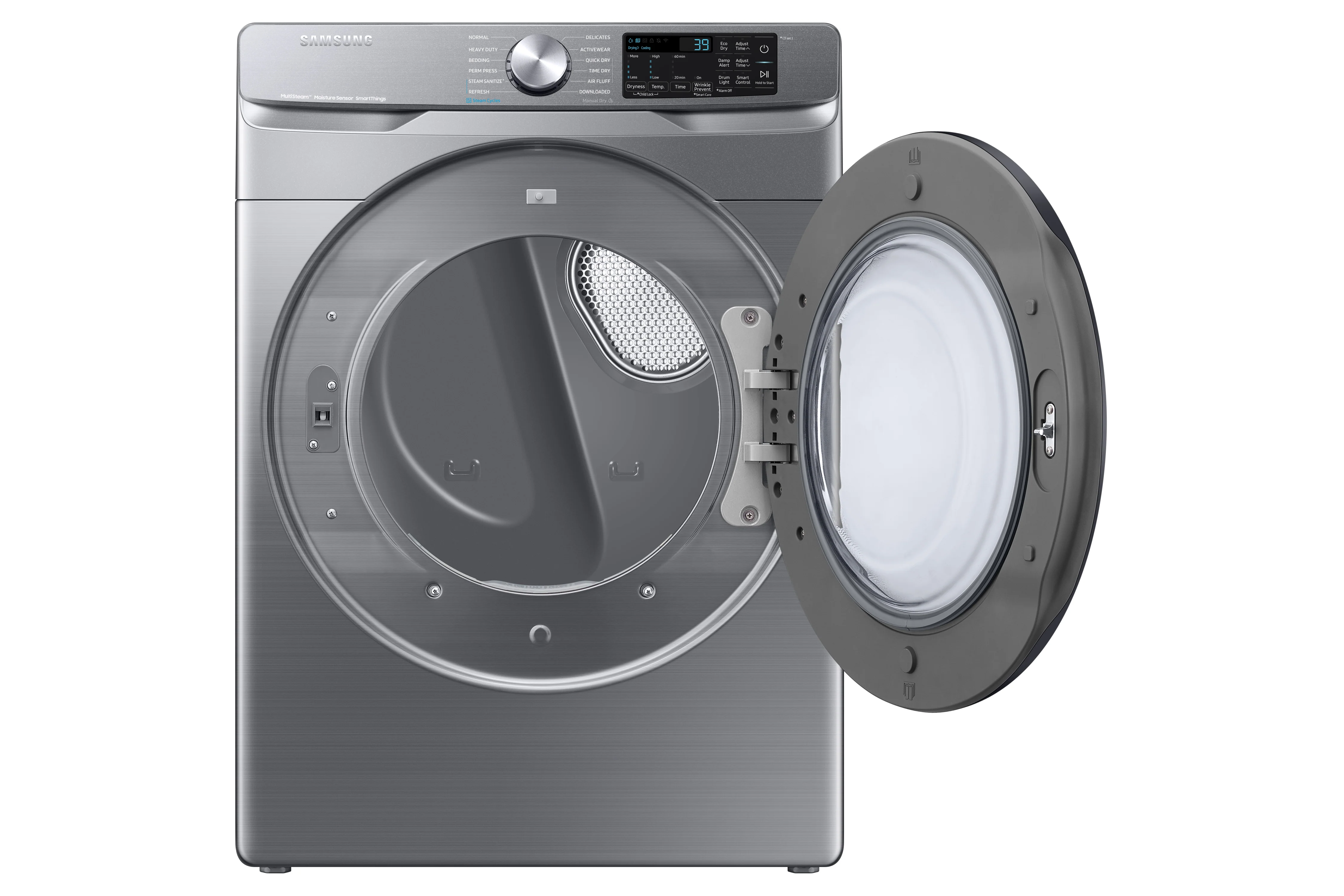There are different types of dryers that you need to choose from, depending on your needs and preferences. Electric dryers use electricity to operate, while gas dryers use natural gas. Both have their own benefits and drawbacks, so you'll need to decide which type is right for you. Electric dryers can be more expensive to operate than gas dryers, but they're also very convenient and efficiency is constantly improving. Electric dryers can be plugged into any standard 110 or 220-volt outlet (depending on the size of the unit), so you don't need to have a gas line installed. Gas dryers are less expensive to operate, but they require you to have a gas line installed.
If you're looking for the most efficient dryer, gas might be the way to go. Gas dryers can be more energy-efficient than electric dryers, so they can save you money on your utility bills. However, some can also be more expensive to purchase.
No matter which type of dryer you choose, make sure you compare features and prices to find the best deal. You can also read online reviews and, of course, use this guide.
In this article, we’ll cover:
What is the Difference Between an Electric and Gas Dryer?
Gas vs Electric Dryers Pros and Cons
An electric dryer uses electricity to power the heating element and a fan, while a gas dryer is powered solely by natural gas. This results in a difference in drying time as well as energy consumption. Each type also has other advantages and disadvantages that should be considered before choosing. Learn more about what's better, gas or electric dryers below.
What is a Gas Dryer?
A gas dryer is a type of clothes dryer that uses natural gas or propane to power the heating elements and fan inside. Compared to electric dryers, gas dryers can be faster and use less energy.
What is an Electric Dryer?
An electric dryer is a type of clothes dryer that uses electricity to power the heating elements and fan inside. Compared to gas dryers, electric dryers tend to take longer and can use more energy.
Is My Home Set Up for a Gas or Electric Dryer?
In order to have a gas dryer, your home must be connected to a natural gas line. If you do not have a gas line, you’ll need to install one before using a gas dryer. Electric dryers, on the other hand, can be plugged into any standard 110-volt or 220-volt outlet, depending on appliance size.
Gas vs Electric Dryer: Which is Better?
While there’s no one answer to this question, many people do wonder, is a gas or electric dryer better for environment concerns? Gas dryers have been around for a long time and were used before electric dryers became readily available. However, as technology has advanced, electric dryers have started becoming as or more popular than gas dryers. Many people still believe that gas dryers are better for the environment.
Gas or Electric Dryer More Efficient?
Figuring out gas dryer vs electric dryer always comes down to efficiency. Electric dryers are becoming more and more efficient with every new model that’s released. But whether you have a gas or electric dryer, you can enhance efficiency with the following tips.
Environmental Efficiency
- Wash and dry only full loads of laundry to maximize efficiency.
- Use the moisture sensor setting on the dryer, which will automatically stop when clothes are dry instead of relying on a timer.
- Choose energy-efficient models that use less heat and energy to dry your clothes.
- Plug the dryer into a smart outlet or energy-monitoring device, which can help you track how much electricity is being used for drying.
- Select the shortest cycle length and temperature setting that will effectively clean and dry your clothes.
- For electric dryers, take advantage of off-peak electricity rates, which are typically cheaper than during the daytime.
- Hang-dry items when possible to save on energy.
- Line-dry or drip-dry delicate items to prevent damage.
- Clean the lint trap after every load of laundry to ensure optimal airflow and efficiency.
- Have the dryer vent professionally cleaned at least once a year to remove any built-up lint.
- Consider purchasing a drying rack or other energy-efficient drying accessories to fully maximize your dryer's efficiency.
Cost to Maintain
Keep maintenance costs down by using the following tips and tricks.
- Checking the air intake vent: The first thing you should do is check the air intake vent and make sure it’s not blocked or clogged. This can cause your dryer to overheat, which can lead to costly repairs.
- Cleaning the lint screen: Regularly cleaning the lint screen will help prevent exhaust fires and reduce drying times. You should also check for any buildup of debris around the edges of the screen.
- Cleaning the dryer vent: It’s important to clean the dryer vent regularly to prevent a fire hazard. You should also check for any blockages or clogs in the vent.
- Replacing the heating element: If your dryer is not heating properly, it may be due to a faulty heating element. It costs about $100 to replace.
- Replacing the thermostat: Another thing to check if your dryer isn’t heating properly is the thermostat. A faulty thermostat typically costs about $25 to replace, but labor can raise your total cost to up to around $200.
- Replacing the belt: If your dryer isn’t spinning properly, it could be due to a broken belt. Replacing a belt is relatively inexpensive and will help keep your clothes dryer running smoothly.
Drying Speed and Effectiveness
Gas or Electric Dryer Cheaper? Gas Dryer Vs Electric Dryer?You probably have these and so many other questions before you make a purchase. First, know that you can typically find either a gas or electric dryer at a relatively similar price point if you need to, so it really just depends on which unit, features, and type of energy you use. Dry time and effectiveness are other important factors to consider.
Some basic tips you can follow to improve dry time and enhance effectiveness:
- Hang dry certain items.
- Clean the lint trap before and after each load.
- Don't over dry your clothes.
- Separate your laundry into loads that can be dried at the same time.
- Use the right settings for your load.
- Use a drying rack or clothesline to dry certain items.
- Open up windows and doors to increase ventilation while drying your laundry.
- Choose an efficient, high-quality dryer that’s designed to save energy and money on your electricity bill.
Vented vs Ventless Dryer
A vented dryer is designed to release the hot air and moisture out of your home through a vent. Ventless dryers do not need a vent, so they can be installed anywhere in the house. Note that some ventless dryers, though easier to install, can be more expensive and take longer to dry clothes.
How to Care for a Dryer
Caring for your dryer is easy when you follow a few of these easy tips. Making them a habit is the best advice – regularly, easy care will keep energy and repair costs down and ensure you get the most out of your dryer for as many years as possible.
Electric Dryer Maintenance Tips
Dry your clothes more efficiently and prevent lint buildup with these electric dryer maintenance tips.
- Clean lint trap: Clean the lint trap after every load. A clogged lint trap can cause your dryer to overheat and can even lead to a fire.
- Check for wear and tear: Check for any visible signs of wear or damage, and replace any worn parts as needed. Keeping your dryer in good condition will help prevent costly repairs down the road.
- Use the right settings: Make sure you’re selecting the appropriate drying settings for each load of laundry. Using the right settings will not only help your clothes last longer, but it’ll also help save energy.
- Use auto-shut off: If your dryer has an automatic shut-off feature, be sure to use it. This can help prevent over-drying, which will increase energy costs and can damage your clothes.
- Keep an eye on the venting system: Periodically check the venting system for any lint buildup. A clogged vent can cause your dryer to overheat and can also be a fire hazard.
Gas Dryer Maintenance Tips
Regular gas dryer maintenance tips like these will keep your dryer in good shape and effective for years.
- Check lint screen: Check the lint screen before every load. A clogged lint screen can cause longer drying times and become a potential fire hazard.
- Clean vent: Clean out your dryer vent at least once a year. A blocked vent can make your dryer work harder, leading to higher energy costs and potential damage to the appliance.
- Use the right setting: If your dryer has them, use the "low heat" or "damp dry" settings whenever possible. This helps prevent over-drying of clothes and minimizes wear and tear on your machine.
- Clean lint trap often: Be sure to regularly clean out the lint trap on your dryer. A build-up of lint in the trap can lead to longer drying times and potential fire hazards.
- Listen for noises: If you notice any unusual noises coming from your dryer, have it checked by a qualified technician as soon as possible. Unusual noises can be indicative of potential problems with the machine.
How to Install a Dryer
Installing a dryer is easier than you might think. The following directions will get you up and running (or drying) in no time.
- Locate a suitable spot on the exterior of your home where you can install your dryer vent. Make sure that it’s in an area that’s out of the way and easy to access, so it’s convenient for you to use when doing laundry.
- Next, measure and cut the length of venting material that you’ll need to connect the dryer vent to the outside of your home.
- Once you have the venting material, attach one end of it to the dryer using a metal clamp or other suggested device.
- Next, take the other end of the venting material and attach it to the exterior wall of your home. You will likely need to use screws or some other type of fastener to secure the venting material tightly in place.
- Finally, plug in your dryer and test it out to make sure that everything is working properly.
Best Electric & Gas Dryers
There are many great dryer brands out there, including Maytag, Samsung, Whirlpool, LG, and others. Some of our favorites of 2024 follow.
Best Electric Dryers
Finding the best electric dryers ultimately depends on what your needs are. Luckily, Coast has a range of options available, but we love each of these.
Best Gas Dryers
Searching for cheap gas dryers near me or the best rated gas dryers is easy with Coast! These are just some of the gas dryers we recommend.
Electric vs Gas Dryer FAQs
Do gas or electric dryers last longer?
There is no definitive answer to this question as it depends on a number of factors, like how often the dryer is used and how well it’s maintained. However, in general, gas dryers tend to last longer than electric dryers.
Do electric dryers use a lot of electricity?
Electric dryers use a significant amount of electricity, so it’s important to consider the cost of running the dryer when choosing which type to purchase.
Do gas dryers need to be vented?
Gas dryers must be vented to the outside of the home to function safely and properly. This is something to keep in mind when deciding where to place the dryer in your home.
Is a gas or electric dryer better for the environment?
Gas dryers are thought by most to be better for the environment. They dry quicker and cost less to run each load. If you have solar panels or an energy efficient electric dryer, though, they can be great options too.
Is a gas or electric dryer faster?
There is no clear answer to this question, as it depends on several factors, such as the type of dryer, how full it is, and how large your laundry load is. However, in general, gas dryers are often considered to be faster than electric dryers.
Are Gas Dryers Better than Electric?
No, they are both excellent choices and which is better for you depends on personal preference and need and what your current setup allows for.
Electric vs Gas Dryer Energy Cost – Is Gas or Electric Dryer Better
Electric dryers might sometimes cost more, but energy-efficient models can be affordable in the long run.
The information on this article is not a promise of service. While we present the most accurate information we can, customers must check each brand and model for the manufacturers' information. Each model has their individual care and maintenance guidelines, normal expected use and lifespan with proper maintenance and care. Customers are responsible for checking information for their appliance, the user manual, manufacturer guidelines as well as using professional services.















